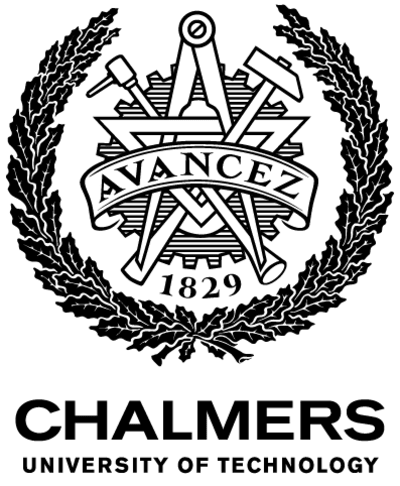
MSc in Design and Construction Project Management
Chalmers University of Technology

Key Information
Campus location
Gothenburg, Sweden
Languages
English
Study format
On-Campus
Duration
2 years
Pace
Full time
Tuition fees
SEK 160,000 / per year *
Application deadline
Request info
Earliest start date
Request info
* tuition fees for non-EU/EEA students
Introduction
The construction industry is at a crossroads. The transition to a more sustainable society poses big challenges — and opportunities — for the sector. New materials, methods, and technologies are coming to the forefront, with accompanying demands for up-to-date, specialized education. This program will train you to analyze and understand these changes, developing the skills essential for tackling these challenges in a responsible and effective manner.
The program will prepare students for the realities of the field. You will gain an advanced understanding of construction management by studying the tools, methods, and theories necessary for the discipline, as well as understanding their roles across the various phases of a project. You will assess the entire construction process, from the early stages through to the design, construction, production, and management of facilities. The program dives into the sector’s complexity, addressing the diversity of participating actors, stakeholders, and perspectives. Mutual understanding between all the relevant parties in the construction sector is crucial — users, clients, architects, engineers, consultants, planners, economists, and more.
The program will prepare you for a long-lasting professional career by giving you a broad repertoire of problem-solving methods, integrating theory and practice to understand and manage the complexity of construction projects. It offers a blend of conventional lectures and seminars with online resources and a variety of external sources. Case studies, real-life projects, and collaborations with industry form vital elements of the program, as do student presentations and group work.
Managers in the built environment sector need to have knowledge of fundamental construction elements like technical, environmental, legal, and contractual demands, all aspects covered in this program. You will also receive training in skills involving knowledge of project management, financial accounting, research methods, Building Information Modeling (BIM), logistics, productivity, and real estate and facilities management. The highly collaborative nature of the construction industry, where projects are carried out in temporary, interdisciplinary environments, is reflected in education. You will encounter a strong focus on cooperation and communication, and training and knowledge related to organizational culture, leadership, teamwork, and decision-making.
Career
Career opportunities within Design and construction project management can be found in both public and private organizations. The challenges of mitigating climate change and urbanization force construction to develop continually and there is a need for competent engineers in this sector who are able to engage and transform the actual modes of production. Civil engineers with a strong background in management are sought after and will be so also in the future, both nationally and internationally.
The core fields are projects focusing on planning, design, construction, and facilities management. Examples of roles are working as a project manager in a construction project organization, working with project development at an architectural office, design manager in a consultancy firm, managing properties in a housing company, developing health care facilities, or working in supportive functions such as purchasing, sustainability, quality, health, and safety.
Our previous students have had a high level of employability within companies in engineering consulting like AFRY, and WSP; contractors like Skanska, NCC, PEAB, and real estate like Vasakronan, Castellum, and Wallenstam to name a few. Some students also hold positions in public organizations like municipalities or regions.
General entry requirements
A Bachelor's degree in Science, Engineering, Technology, or Architecture
To fulfill the general entry requirement for a Master's program at Chalmers (at advanced level/the second cycle), the prospective student must hold a degree that is equivalent to a Swedish Bachelor's degree (minimum 3 years, 180 Swedish higher education credits) in either Science, Engineering, Technology or Architecture.
- All applicants must document their formal academic qualifications to prove their eligibility. Only documentation from internationally recognized universities will be approved by the Swedish Council for Higher Education which manages the website universityadmissions.se.
- If an applicant is also a holder of a second degree such as a Master's degree, that may be to fulfill specific (course) requirements, it cannot be used to fulfill the general entry requirement on its own.
In your final year of Bachelor's Studies
Students in their last year of studies who don't yet have documentation of their soon-to-be-completed degree can be accepted.
Restrictions
Degrees that are constructed on one another cannot consist of the same course
Applicants who fulfill the general entry requirements for the second cycle (master’s level) programs and eventually specific entry requirements can be admitted to a master’s program. Applicants cannot be evaluated as unqualified in the qualifying academic merits which include courses from the program’s plan in those programs that they have applied for if that occurs.
Courses included in an earned first cycle degree (bachelor’s level) or professional qualification of at least 180 cr. (180hp) or the equivalent foreign qualification that are prerequisites for master’s qualifications may not be included in the higher qualifications. This also applies to prerequisite courses for master’s programs, regardless of whether they are included in the underlying qualification. *
*) Local Qualifications Framework for Chalmers University of Technology - first and second cycle qualifications.
Restrictions for Citizens from the Democratic People’s Republic of Korea (North Korea)
Chalmers cannot admit applicants with citizenship of the Democratic People’s Republic of Korea only to any program or course, due to the Council Regulation (EU) 2017/1509 of 30 August 2017 concerning restrictive measures against the Democratic People's Republic of Korea and repealing Regulation (EC) 329/2007.
For applicants with double citizenship of which one is of the Democratic People's Republic of Korea and the other of another country, the citizenship of the other country has precedence in this respect.